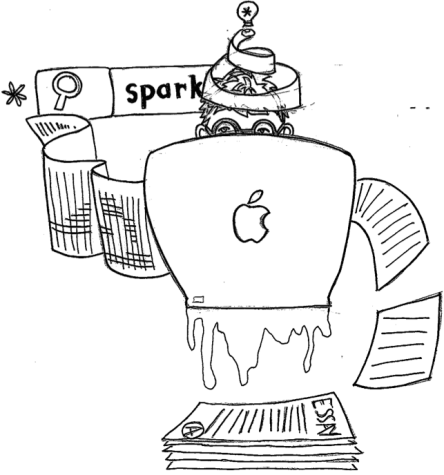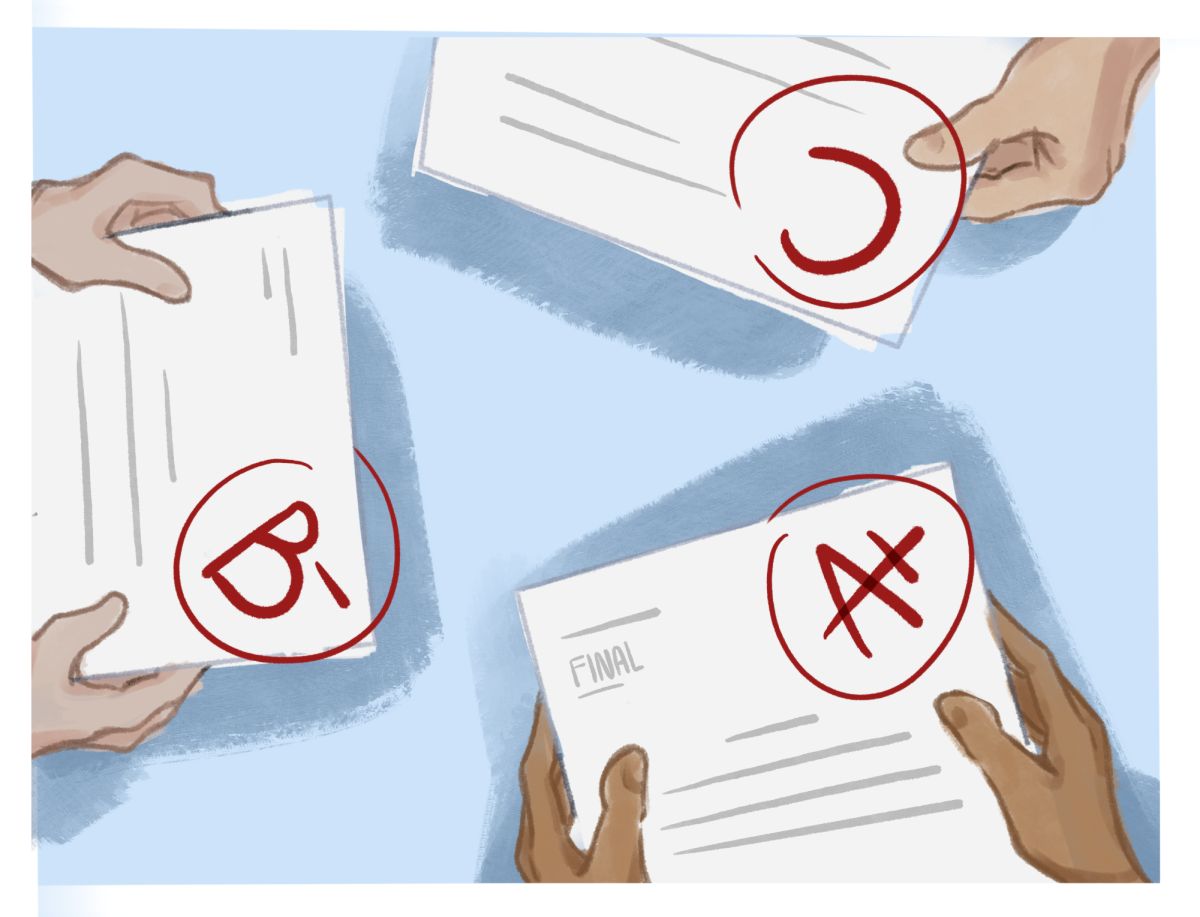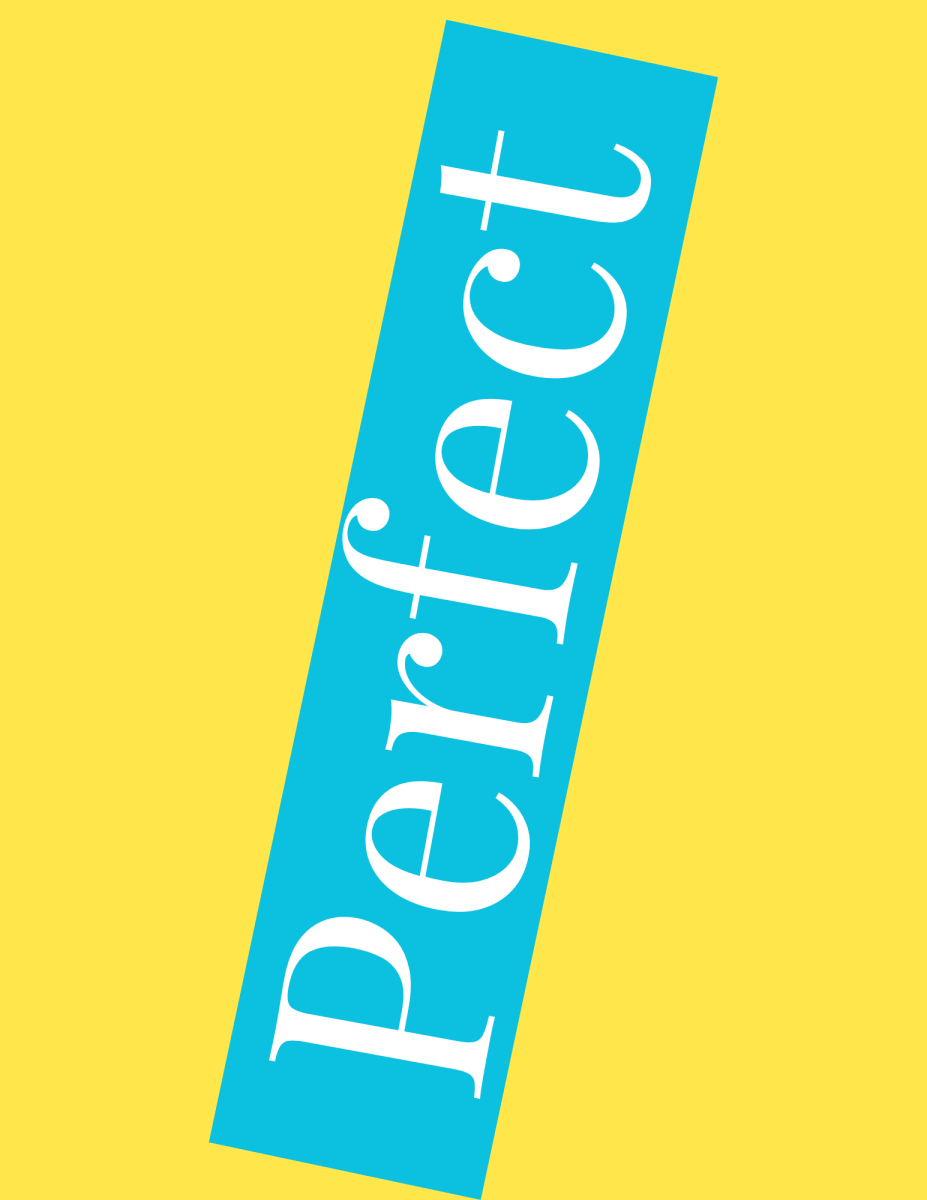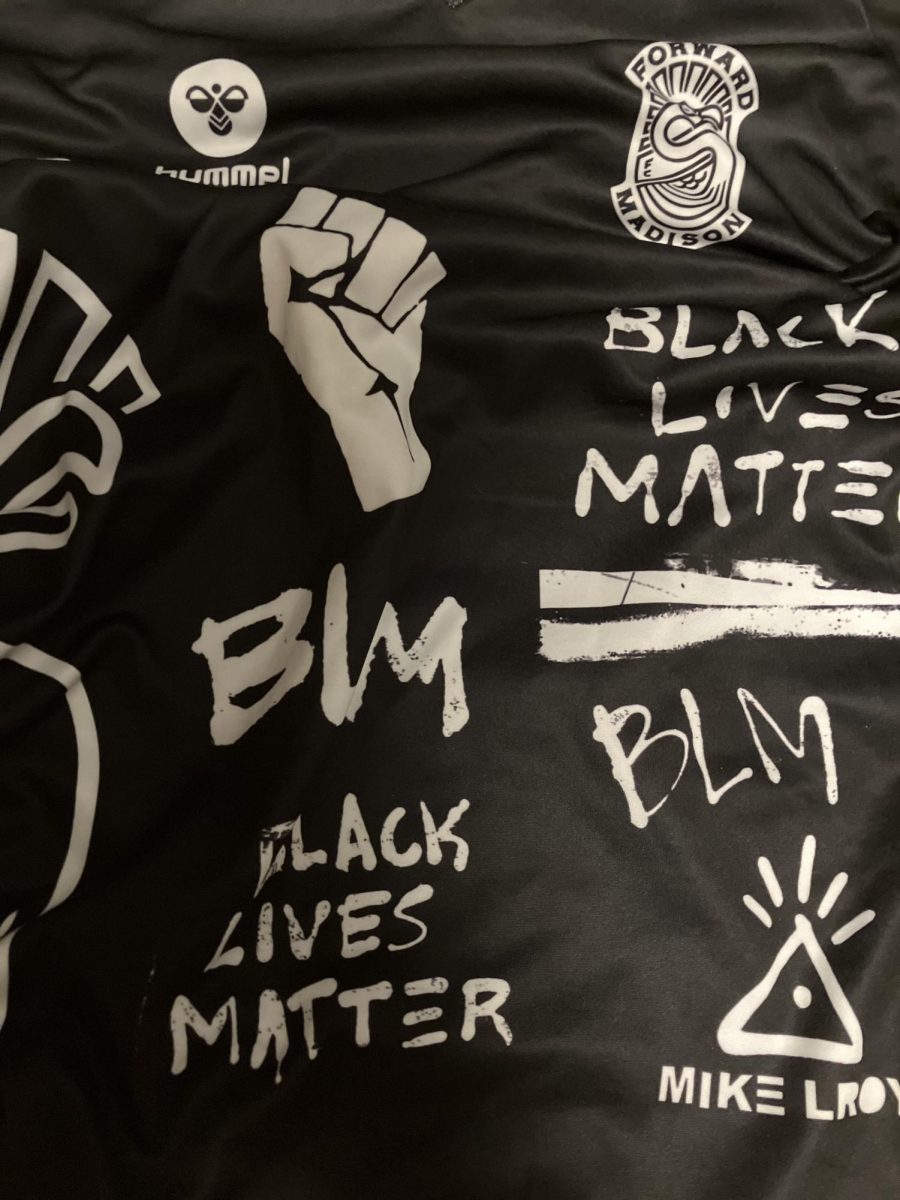
Students at Blake churn out Sparknotes information as their own
According to Betty Brown’s daily emails, Blake’s four core values are respect, love of learning, integrity and courage. Cheating, a rampant problem at Blake, disregards these values.
At Blake, students are trusted to follow these guidelines and maintain academic integrity, resulting in teachers not monitoring or “policing” students’ activities. However, first-hand accounts and results from Challenge Success’ May 2012 Survey, and the Independent School Health Check in October 2012 show that many students take advantage of this trust-based system.
According to the ISHC, nearly half of the Blake student population feels a high level of academic pressure from parents, which may contribute to students engaging in unethical activity.
Erin Adams reports that the most common forms of cheating on Blake’s survey were “working on an assignment with others when the instructor asked for individual work, copying someone else’s homework [and] copying a few sentences of material from a written source without appropriate references.”
The majority of students still uphold Blake’s core values and choose to separate themselves from cheaters. Logan Sudeith ’18 comments, “If someone wanted to cheat off of me I would not let them because knowingly letting someone cheat [off of me] would get me into a lot of trouble, as well as the cheater. [Cheating] is morally wrong.”
Some students, including Sudeith, are not tempted to cheat even though cheating grants a short-term academic advantage. Other students see cheaters not getting caught and consequently getting higher grades, which tempts them to partake in cheating. Though this short-term advantage may seem appealing, many times cheaters are caught, and the accompanying consequences may end in suspension.
At Blake, the statistics show that male students are more likely to cheat, students in advanced courses are less likely to cheat, and white students cheat more than students of color. Also, 22.2% of students cheat on tests or quizzes, 22.6% do unauthorized copying, 39.6% use resources like SparkNotes, and 42.6% look up ideas on the internet without crediting the source. The studies also showed that “students who report cheating more also report putting less effort into their schoolwork, finding less value in their schoolwork, and enjoying their schoolwork less.”
In English classes, students will often use SparkNotes as a replacement for reading. According to the SparkNotes website, SparkNotes provides “brief analyses of characters, themes and plots.” This allows students to skim the assigned reading, make some brief marks for annotations, and then read the key details using this website.
When students cheat they are not improving their own score; they are preventing other students’ honest work from succeeding. An anonymous student shares, “In Chinese class, I noticed next to me a friend of mine was using his homework to cheat on a quiz, which is worth a lot of points. A fail on a quiz can bring your grade down. [This student] was cheating because he didn’t study.” Many times cheaters get away with their actions because students do not want to report their peers.
Adams says that some students may not even know they are “cheating” and that using a false excuse to get an extension is considered academic dishonesty. When the cheating student from the Chinese class was questioned about his dishonest behavior, he icily replied, “[The answers] were face down. I don’t cheat.”
Some students believe that cheating is the best option to succeed because they are not getting caught and it is helping their grades. However, this is not always the case, as many teachers can tell when students have not read closely or when they have copy and pasted sections of text into essays. To all cheaters: Currently, you are swindling your way through school. Sooner or later you will be caught. Then, will cheating really have been worth it? Will trashing your integrity have been worth it?





